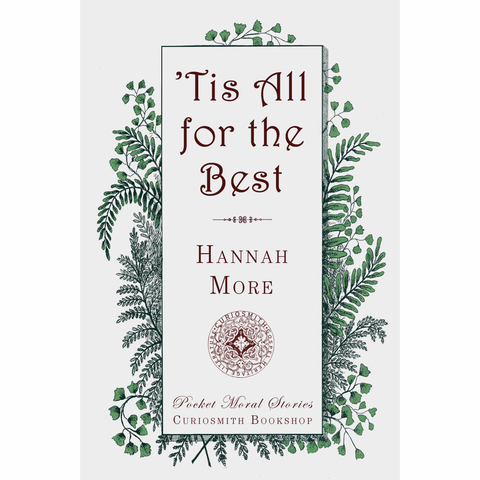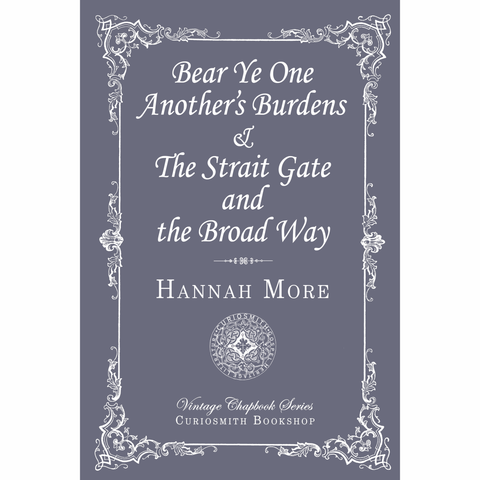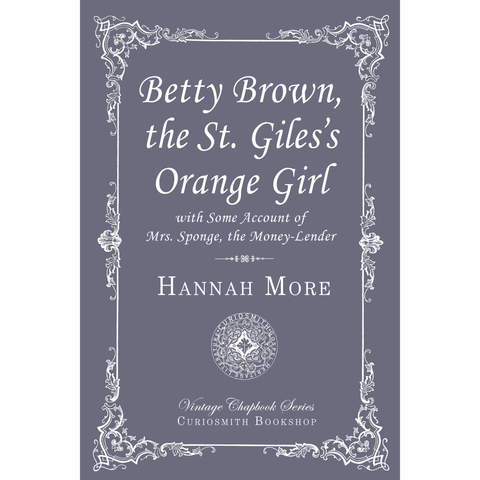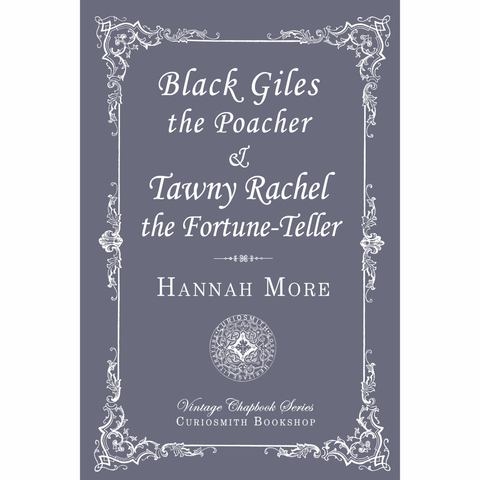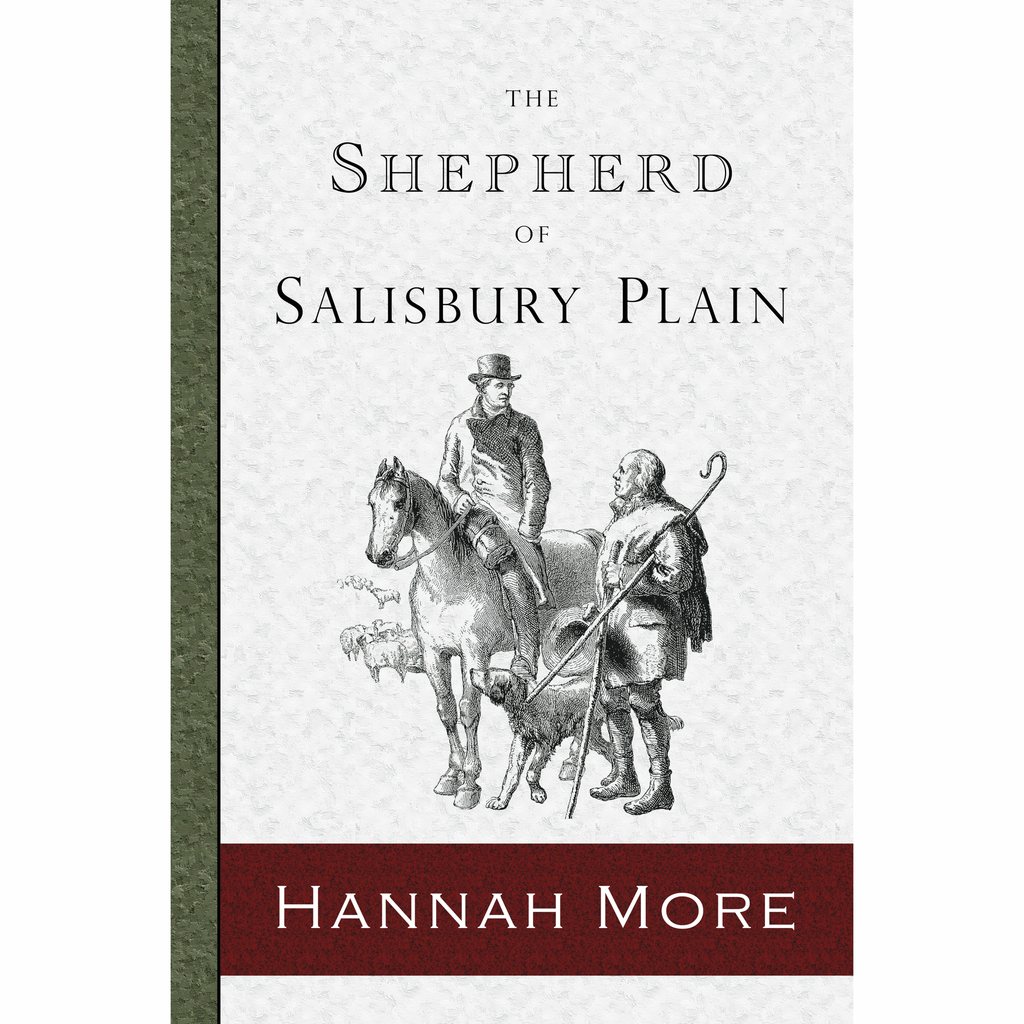
The Shepherd of Salisbury Plain by Hannah More
David Sanders was a shepherd who tended his flocks on Salisbury Plain, England, during the eighteenth century. Mr. Johnson, who was Hannah More's friend Dr. Stonhouse, found him to be an intriguing man of faith because of his humble and peaceful attitude about life, while having modest material wealth. This true narrative was very popular when written and is filled with the thoughtful insights of a simple man with an old family Bible. He delighted in his occupational counterparts like Moses, David and other shepherds. A quote from the book: "It was to shepherds keeping their flocks by night, that the angels appeared in Bethlehem, to tell the best news, the gladdest tidings, that ever were revealed to poor sinful men; often and often has the thought warmed my poor heart in the coldest night, and filled me with more joy and thankfulness than the best supper could have done."
This edition includes a biography of Hannah More by Henry Johnson, short memoirs of both David Sanders and Dr. Stonhouse, and a letter written by David Sanders. It also includes the short story "'Tis All for the Best," by Hannah More.
Paperback, 128 pages, 7 illustrations. ISBN 9780981750552; LCCN 2009943382
HANNAH MORE (1745-1833) was born in Stapleton, Bristol, England. Early in her life she was interested in the theater and wrote plays. For six years her fashionable social life grew to include many important people, but when it lost its appeal she turned to religion. Dr. James Stonhouse is credited with Hannah More’s spiritual awakening, but it was John Newton’s influence that gave energy and devotion to her spiritual walk, and she became a strong Evangelical Christian. Education was a strong theme in her life and William Wilberforce encouraged her to start schools for the education and moral advancement of poor village children. To counteract immoral forces in society, Hannah More, her sister Sarah, and others wrote a series of successful chapbooks called the “Cheap Repository Tracts.” She was also active with a group called the “Clapham Sect” that met at Henry Thornton’s house in Clapham. She had a vast social circle and wrote a multitude of letters. Her talent for writing also produced many books of drama, poetry, hymns, fiction and religious instruction.

